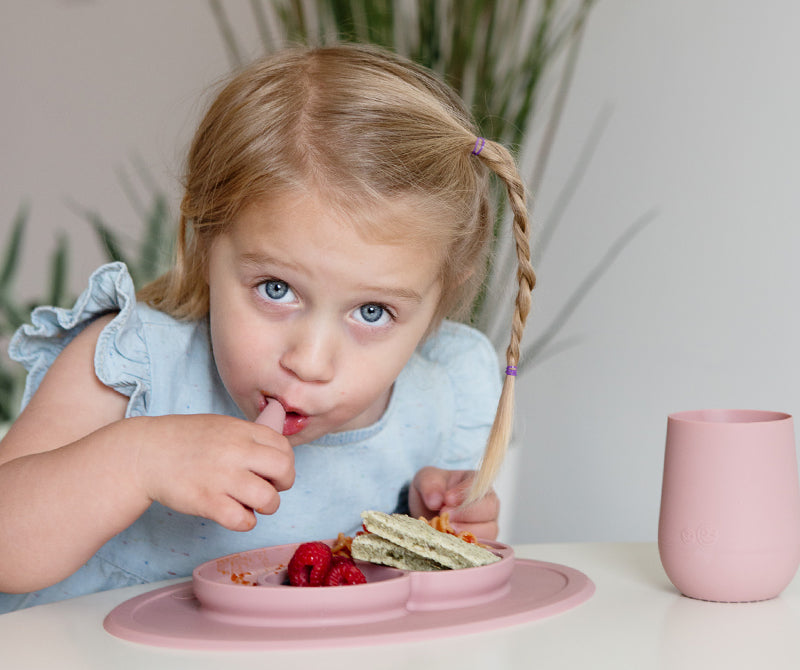Back to school anxiety can occur for parents, therapists, teachers and kids. This overwhelming feeling is real, and it can wreak havoc for children who already struggle to eat. Here are a few tips to help your child if they are struggling with back to school transitions and routines.
Transitions: Some children have difficulties eating with an adult (other than their mom or dad). Or, they may find themselves uncomfortable eating with children outside of their own siblings. Even if their teachers and classmates are supportive and kind, the difficult transition of eating with other people can increase picky eating tendencies + food refusals at school. Transition anxiety can be exacerbated if the child is starting childcare for the first time or entering a new grade such as kindergarten or middle school. It can be difficult for these kids to feel comfortable eating outside of the home.
- Car Snack Emergencies: Eating at school can be a huge transition for a child that struggles with picky eating or anxiety around mealtime. If you have a little one that is refusing to eat while at school, then you should have a snack ready for them as soon as they get into your car. It’s okay to maneuver out of the school pick-up lane and pull over so your child can have a quick snack. I teach parents to have a car snack emergency pack! This food pack can consist of a pre-made lunch or a healthy smoothie in the Mini Cup + Straw Training System. You can also have a variety of prepared foods like meat sticks, bars, fruit roll-ups, nuts etc. that are organized in a food storage container inside your car.
- Love Note: Several kids that I work with in feeding therapy tell me that a short love note from a parent or sibling in their lunchbox can make all the difference for successful mealtime at school. A sticky note with “You got this!” or a drawing from a younger sibling can help make the back to school transition a bit easier.
Routines: Mealtime routines can be inconsistent at school. There are often changes in the time lunch is served, or there are lunchroom seating changes, a new assistant helping during a meal, etc. All of these changes require a child to make an adjustment to their feeding routine. Most kids can handle these small changes and enjoy their meal. But some children cannot be expected to eat with these types of distractions present.
- Schedule Success: Ask for additional support for your child from the teacher or school. Explain that your little one needs to know in advance if a mealtime routine is going to change. Is the class going on a field trip and lunch will be at 11:15 instead of 11:45pm? Advance notice can help you prepare your child for this change.
- Stick with the familiar: To encourage your child to eat at school, be sure to pack the foods and utensils they are familiar with. This will help decrease concerns they may experience and help them to be more independent. The ezpz Mini Utensils have a silicone handle that provides sensory input to help keep kids calm, but also has a nylon head to make scooping and piercing easy. These design aspects are helpful when children are eating in unfamiliar environments.
Is your child struggling with back to school transitions or routines? What are some of your tips for decreasing anxiety and encouraging your kiddo to eat at school? #ezpzfun



